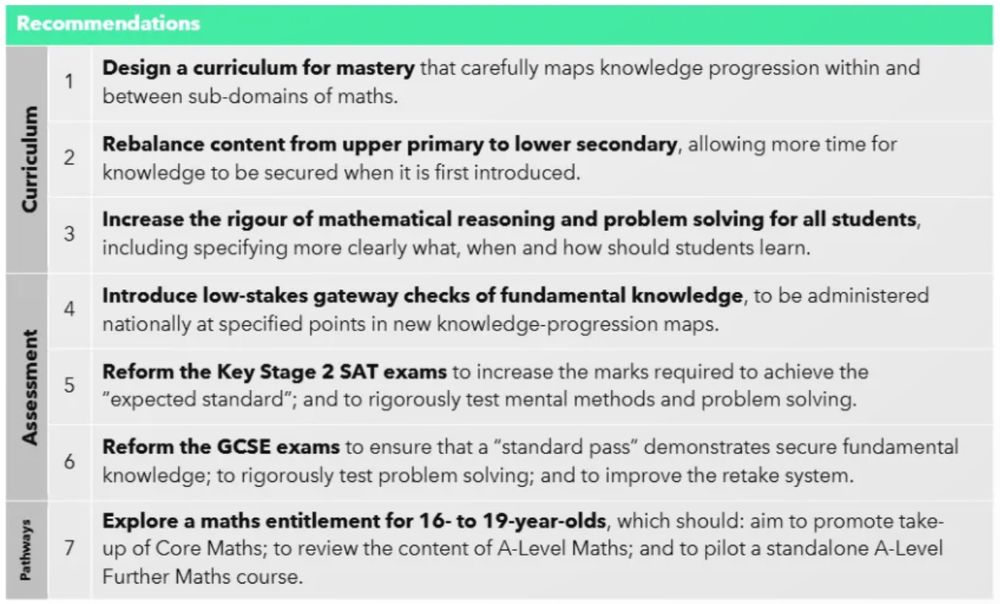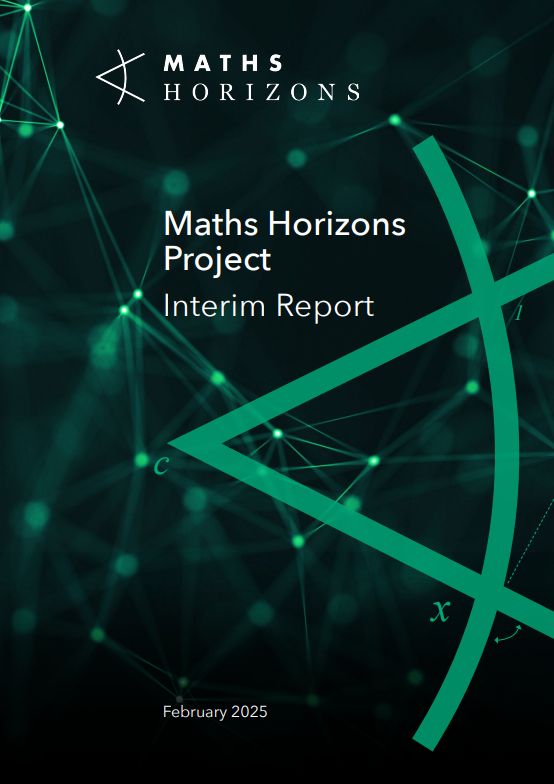


Our launch event at the House of Lords later today will present the following seven recommendations:
(🧵1/7)

Our launch event at the House of Lords later today will present the following seven recommendations:
(🧵1/7)
This report reflects on some of what we have learned so far through an extensive range of contributors. We would love to hear your thoughts on the findings!

This report reflects on some of what we have learned so far through an extensive range of contributors. We would love to hear your thoughts on the findings!
Here's a🧵on some of the data that we have got back.
Here's a🧵on some of the data that we have got back.
Teachers in less affluent schools are almost twice as likely to believe that <10% of their students have the potential to study maths at university, compared to teachers in more affluent settings.
Teachers in less affluent schools are almost twice as likely to believe that <10% of their students have the potential to study maths at university, compared to teachers in more affluent settings.

In our second phase of research with @teachertapp.bsky.social, we looked at teachers’ perceptions of the amount, comprehension and enjoyment of maths content from ages 5 to 14. (1/7)
In our second phase of research with @teachertapp.bsky.social, we looked at teachers’ perceptions of the amount, comprehension and enjoyment of maths content from ages 5 to 14. (1/7)
Latest research from Maths Horizons suggests that the national curriculum in England is not achieving its purpose and aims. 🧵(1/7)
Latest research from Maths Horizons suggests that the national curriculum in England is not achieving its purpose and aims. 🧵(1/7)
How do we support and inspire more students to join and stay on the pathway that enables them to meet the needs of the most demanding study and careers in STEM?

How do we support and inspire more students to join and stay on the pathway that enables them to meet the needs of the most demanding study and careers in STEM?
What are the major points of challenge in the existing system?
What are the consequences of these points of challenge on students?
Contribute to our third investigation now!
www.mathshorizons.uk/get-involved...

What are the major points of challenge in the existing system?
What are the consequences of these points of challenge on students?
Contribute to our third investigation now!
www.mathshorizons.uk/get-involved...
What should be added, removed or re-sequenced to improve maths learning for all; and how are we ensuring the strongest and most enjoyable foundations in maths for all children?

What should be added, removed or re-sequenced to improve maths learning for all; and how are we ensuring the strongest and most enjoyable foundations in maths for all children?
Contribute to our first investigation here.
www.mathshorizons.uk/get-involved...

Contribute to our first investigation here.
www.mathshorizons.uk/get-involved...
Alongside the Government’s review, Maths Horizons are launching a rapid review of maths curriculum and assessment in England.
Go to mathshorizons.uk/get-involved before midday Wednesday to have your voice heard on how the maths curriculum should be changed.

Alongside the Government’s review, Maths Horizons are launching a rapid review of maths curriculum and assessment in England.
Go to mathshorizons.uk/get-involved before midday Wednesday to have your voice heard on how the maths curriculum should be changed.
Go to www.mathshorizons.uk/get-involved before midday on 16th October to make your voice heard on how the maths curriculum should be changed.

Go to www.mathshorizons.uk/get-involved before midday on 16th October to make your voice heard on how the maths curriculum should be changed.


